Dagstuhl-Seminar 17392
Body-Centric Computing
( 24. Sep – 29. Sep, 2017 )
Permalink
Organisatoren
- Steve Benford (University of Nottingham, GB)
- Kristina Höök (KTH Royal Institute of Technology - Stockholm, SE)
- Florian 'Floyd' Mueller (RMIT University - Melbourne, AU)
- Dag Svanaes (NTNU - Trondheim, NO)
Kontakt
- Simone Schilke (für administrative Fragen)
The rise of technology that can support the active human body – in contrast to the previously prevalent paradigm of interacting with computers while sitting still – such as wearables, quantified self systems and mobile computing highlights an opportunity for a new era of "body-centric computing". However, most work in this area has taken quite an instrumental perspective, focusing on achieving extrinsic performance objectives. Phenomenology, however, highlights that it is also important to support the experiential perspective of living an active life, that is, technology should also help people focus on their lived experiences and personal growth to deepen their understanding and engagement with their own bodies.
We find that despite the work on embodiment, the use of technology to support the corporeal, pulsating and felt body has been notably absent. We believe the reason for this is due to limited knowledge about how to understand, analyse and correlate the vast amount of data from the various sensors worn by individuals and populations in real-time so that we can present it in a way that it supports people's felt experience. In order to drive such an agenda that supports both instrumental and experiential perspectives of the active human body, this seminar brings together leading experts, including those who are central to the development of products and ideas relating to wearables, mobile computing, quantified self, data analysis and visualization, exertion games and computer sports science. The goal is to address key questions around the use of sensor data to support both instrumental and experiential perspectives of the active human body and to jump-start collaborations between people from different backgrounds to pioneer new approaches for a body-centric computing future.
 Steve Benford, Kristina Höök, Florian Mueller, and Dag Svanes
Steve Benford, Kristina Höök, Florian Mueller, and Dag Svanes
Press Reviews
- Dagstuhl - BodyCentricComputing-2017
Photo stream by m.c. phoo on flickr
The rise of technology that can support the active human body - in contrast to the previously prevalent paradigm of interacting with computers while sitting still - such as wearables, quantified self systems and mobile computing highlights an opportunity for a new era of "body-centric computing". However, most work in this area has taken quite an instrumental perspective, focusing on achieving extrinsic performance objectives. Phenomenology, however, highlights that it is also important to support the experiential perspective of living an active life, that is, technology should also help people focus on their lived experiences to deepen their understanding and engagement with their own bodies. We find that despite the work on embodiment, the use of technology to support the corporeal, pulsating, felt body has been notably absent. We believe the reason for this is due to limited knowledge about how to understand, analyse and correlate the vast amount of data from the various sensors worn by individuals and populations in real-time so that we can present it in a way that it supports people's felt experience. In order to drive such an agenda that supports both instrumental and experiential perspectives of the active human body, this seminar brought together leading experts from industry and academia, including those who are central to the development of products and ideas relating to wearables, mobile computing, quantified self, data analysis and visualization, sports science, exertion games, computer sports science as well as phenomenology. The goal was to address key questions around the use of sensor data to support both instrumental and experiential perspective of the active human body and to jump-start collaborations between people from different backgrounds to pioneer new approaches for a body-centric computing future.
 Florian Mueller, Josh Andres, Joseph Marshall and Dag Svanes
Florian Mueller, Josh Andres, Joseph Marshall and Dag Svanes
- Josh Andres (IBM Research - Melbourne, AU) [dblp]
- Kathrin Gerling (University of Lincoln, GB) [dblp]
- Stefan Göbel (TU Darmstadt, DE) [dblp]
- Nicholas Graham (Queen's University - Kingston, CA) [dblp]
- Marianne Graves Petersen (Aarhus University, DK) [dblp]
- Perttu Hämäläinen (Aalto University, FI) [dblp]
- Martin Jonsson (Södertörn University - Huddinge, SE) [dblp]
- Elena Márquez Segura (University of California - Santa Cruz, US) [dblp]
- Joe Marshall (University of Nottingham, GB) [dblp]
- Anna Lisa Martin-Niedecken (Zürcher Hochschule der Künste, CH) [dblp]
- Jochen Meyer (OFFIS - Oldenburg, DE) [dblp]
- Florian 'Floyd' Mueller (RMIT University - Melbourne, AU) [dblp]
- Corina Sas (Lancaster University, GB) [dblp]
- Thecla Schiphorst (Simon Fraser University - SIAT, CA) [dblp]
- m.c. schraefel (University of Southampton, GB) [dblp]
- Anna Stahl (RISE SICS - Kista, SE) [dblp]
- Dag Svanaes (NTNU - Trondheim, NO) [dblp]
- Jakob Tholander (Stockholm University, SE) [dblp]
- Elise van den Hoven (University of Technology - Sydney, AU) [dblp]
- Rainer Wieching (Universität Siegen, DE) [dblp]
- Florian Wolling (Universität Siegen, DE) [dblp]
Klassifikation
- mobile computing
- society / human-computer interaction
Schlagworte
- Embodiment
- mobile computing
- quantified self

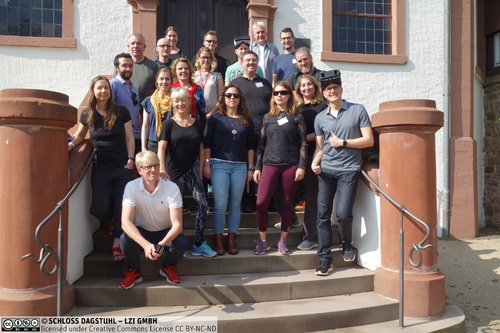
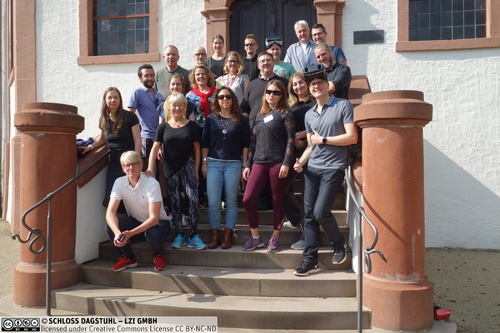
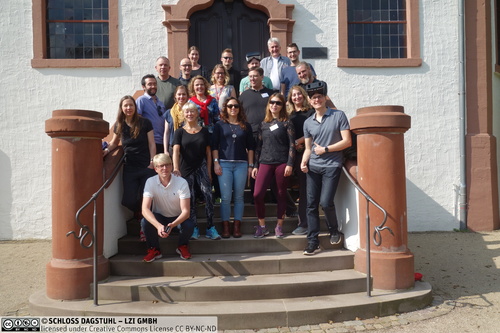
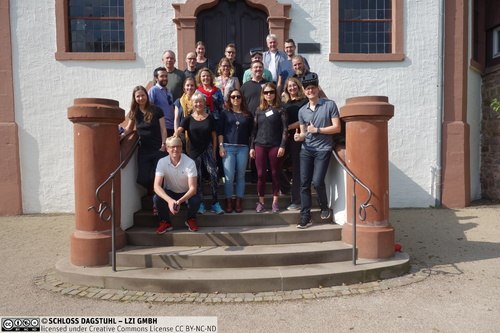
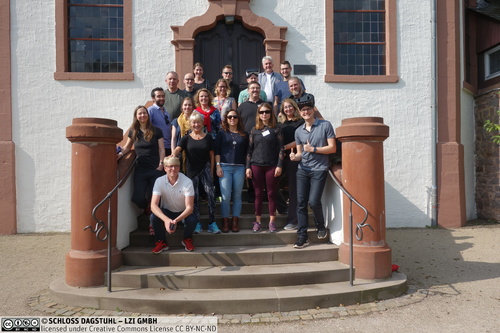
 Creative Commons BY 3.0 DE
Creative Commons BY 3.0 DE
